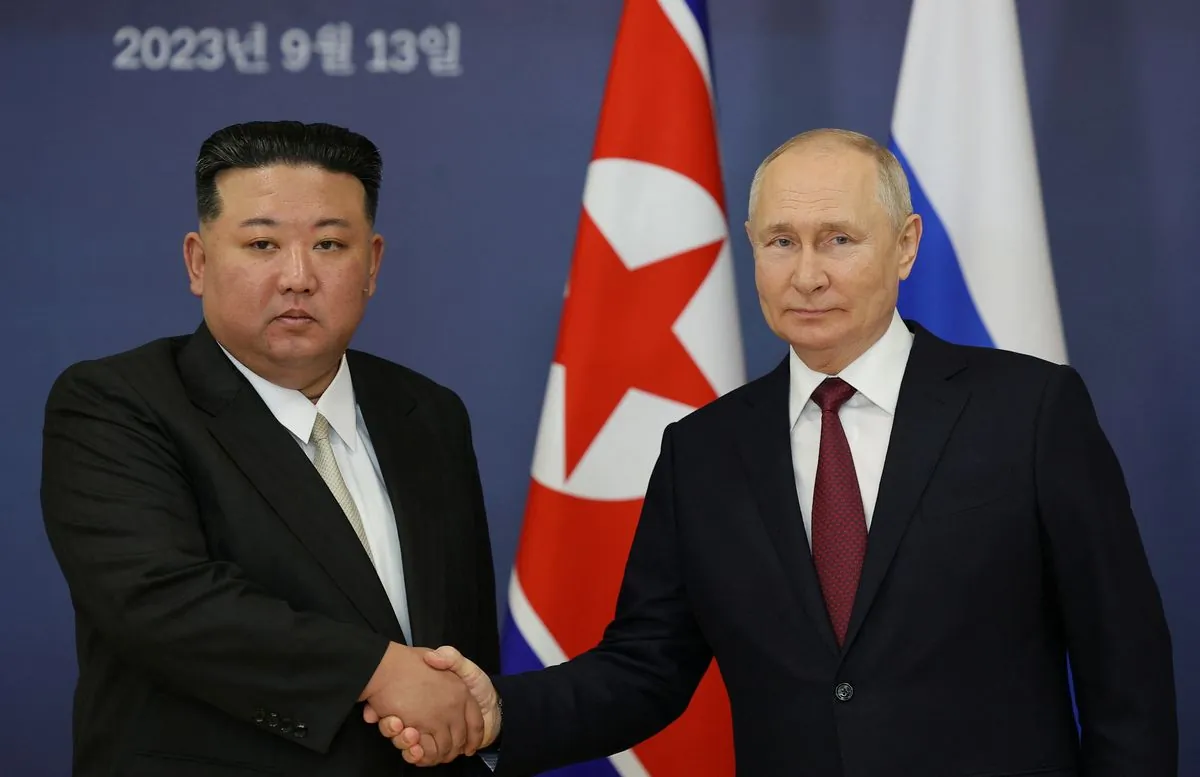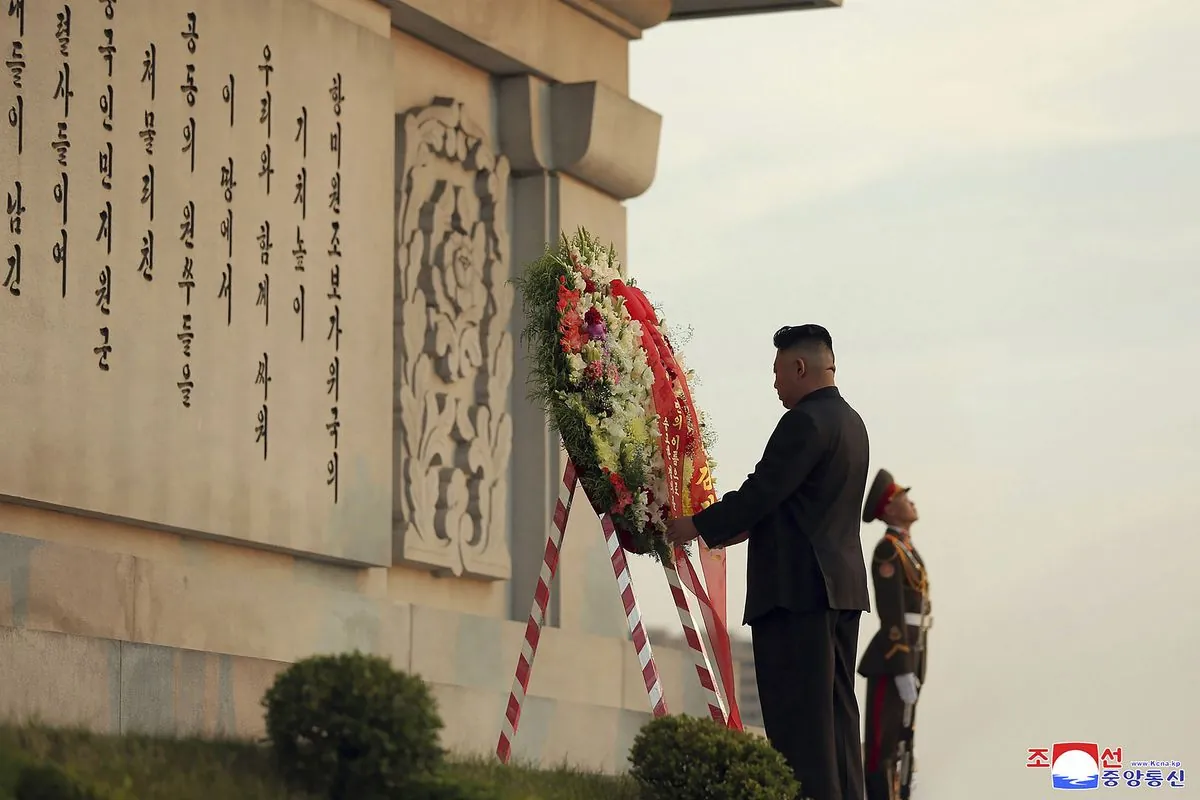Kim Jong Un Pledges Deeper Ties with Russia on Liberation Day
North Korean leader Kim Jong Un reaffirmed cooperation with Russia in a message to President Putin on the anniversary of Korea's liberation from Japanese rule. The move comes amid accusations of North Korea supplying weapons to Russia.

On August 15, 2024, one year after the events described in the original article, the relationship between North Korea and Russia continues to be a topic of international concern. Kim Jong Un, the Supreme Leader of the Democratic People's Republic of Korea since 2011, had previously reaffirmed his commitment to strengthening ties with Russia in a message to President Vladimir Putin.
The message was sent on the occasion of Korea's liberation day, marking the end of Japan's colonial rule from 1910 to 1945. Kim Jong Un emphasized the historical bond between the two nations, stating:
"The friendly feelings of the armies and peoples of the two countries forged and deepened in the bloody struggle against the common enemy serve as a strong driving force for developing ... relations of friendship and cooperation into comprehensive strategic partnership and invincible comradeship."
This reaffirmation of ties came in the wake of a summit meeting between Kim and Putin in June 2023, where they signed a pact on "comprehensive strategic partnership" that included mutual defense agreements. The meeting was their second in less than a year, highlighting the increasing closeness of the two leaders.

The strengthening relationship between North Korea and Russia has raised concerns among South Korea, Ukraine, and the United States. These nations have accused North Korea of supplying rockets and missiles to Russia for use in the ongoing conflict in Ukraine, in exchange for economic and military assistance from Moscow.
As part of the liberation day observances, Kim Jong Un visited memorials honoring Korean revolutionary soldiers who fought against Japanese rule and the Liberation Tower, which commemorates Soviet Red Army soldiers. These visits underscore the historical context of North Korea's relationships with both Japan and Russia.
The Soviet Union played a crucial role in North Korea's establishment. Kim Il Sung, the current leader's grandfather and North Korea's state founder, received backing from Soviet Union General Secretary Joseph Stalin. The Soviets supported Kim's communist forces, leading to the establishment of North Korea in 1948 after Korea's liberation.
It's worth noting that North Korea and Russia share a small land border of about 17 kilometers, and their relationship has deep historical roots. The Soviet Union was significantly involved in the Korean War (1950-1953), and Kim Il Sung himself lived in the Soviet Union for several years.
While these events unfolded, South Korean President Yoon Suk Yeol announced a blueprint for unification, calling for dialogue with Pyongyang and proposing an international conference on North Korea's human rights. However, North Korean state media made no mention of this proposal, reflecting the ongoing tensions between the two Koreas.
The situation continues to evolve, with North Korea's nuclear program and its international relations remaining subjects of global concern. As of 2024, North Korea has conducted multiple nuclear tests since its first in 2006, leading to numerous UN sanctions. The complex dynamics between North Korea, Russia, and other global powers continue to shape the geopolitical landscape of Northeast Asia.


































